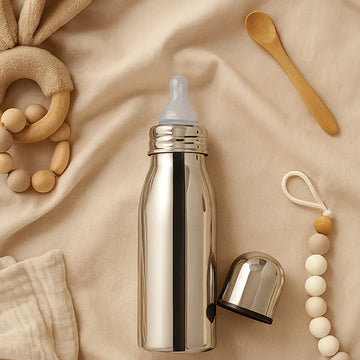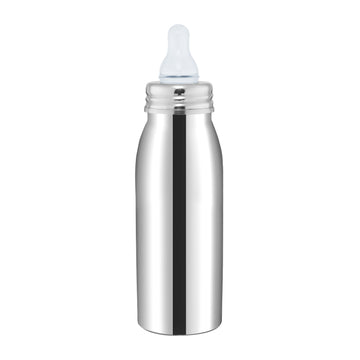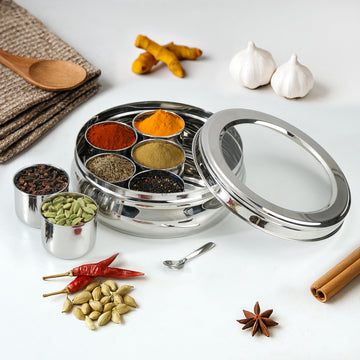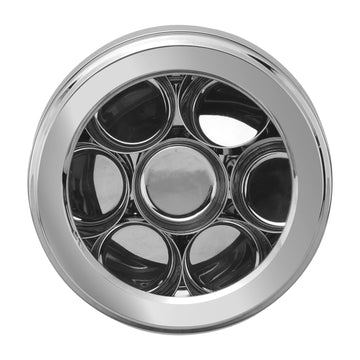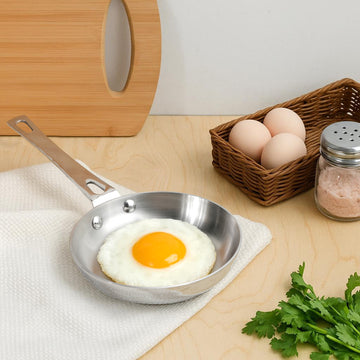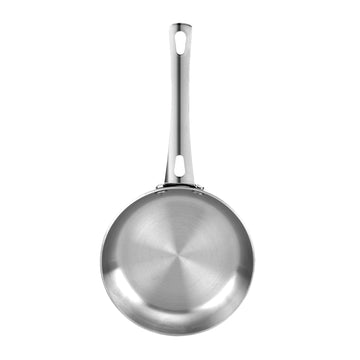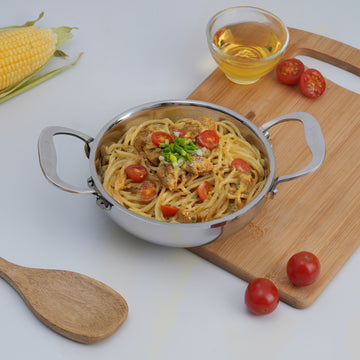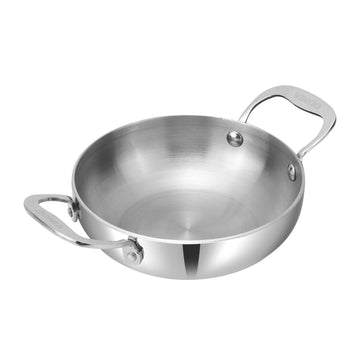Is Hard Anodised Cookware Safe?

When you do something every day—like cooking—you want it to be both efficient and safe. Just as we instinctively check the freshness of fruits and vegetables before preparing meals, we should also be aware of the cookware we use. After all, the safety of our food doesn’t end with clean produce—it continues with the cookware we use to prepare it.
This is especially true today, as more consumers become health-conscious and scrutinize not just ingredients, but also the pots and pans their meals are cooked in. One cookware material that has generated significant curiosity—and some confusion—is hard anodised aluminum. So, let’s clear up the doubts: Is hard anodised cookware safe?
Aluminum is a popular material in cookware manufacturing for good reasons. It’s lightweight, affordable, and an excellent conductor of heat, allowing food to cook evenly without hot spots. Its malleability makes it easy to shape into various forms, perfect for everything from saucepans to pressure cookers.
However, pure aluminum has a downside—it reacts with acidic or salty foods, like tomatoes or lemon-based dishes. Over time, this can cause the metal to leach into food, raising health concerns. This potential for chemical reaction made many wary of using aluminum cookware directly, despite its many advantages.
Enter Non-Stick—and Its Limitations
To solve this, manufacturers began coating aluminum cookware with non-stick surfaces. This created a buffer between the food and the metal. While non-stick coatings offered ease of cooking and cleaning, they weren’t without their flaws. Once the coating started to wear off or peel—a common issue with prolonged use—food could come into contact with raw aluminum again, bringing back the original concerns
What Is Hard Anodised Cookware?
Hard anodised cookware is the industry’s smart solution to these concerns.
It is made through an electrochemical process called anodization, where aluminum is submerged in an acid bath and subjected to an electric current. This oxidizes the surface of the aluminum, making it harder than stainless steel and creating a naturally non-reactive, non-porous layer. Unlike non-stick coatings that can peel off, this hard anodised layer is fused with the metal itself. It doesn’t chip, crack, or react with food—even acidic dishes.
So, Is Hard Anodised Cookware Safe?
Yes, hard anodised cookware is completely safe for cooking. In fact, it offers several health and safety advantages:
-
Non-Reactive Surface: It doesn't leach into food, even when cooking acidic or salty recipes.
-
Durability: The anodised surface is scratch-resistant and far more durable than standard non-stick or raw aluminum.
-
Even Heat Distribution: Like pure aluminum, it heats evenly, allowing consistent cooking without hot spots.
-
Less Oil Required: Many hard anodised pans have excellent food release properties, making low-oil cooking easier—perfect for health-conscious families.
The Vinod Cookware Difference
At Vinod Cookware, we take pride in offering premium Hard Anodised Cookware under our HANOS collection. Designed with Indian kitchens in mind, these products combine high performance with health and safety. Our hard anodised cookware features:
-
Thick-gauge aluminum for enhanced durability
-
Non-toxic anodised surfaces that are safe and long-lasting
-
Compatibility with gas and induction cooktops
-
Stylish, sleek design that fits modern kitchens
So now, when you are sautéing vegetables, simmering curries, or frying up a weekend special, rest assured that with Vinod Cookware’s hard anodised cookware, you’re doing it safely and efficiently.
In an age where health is a top priority, it's essential to not just eat right—but also cook right. Hard anodised cookware offers a perfect balance between performance, durability, and safety. And when you choose a trusted brand like Vinod Cookware, you can rest assured that you're bringing home cookware that truly supports your healthy lifestyle.

